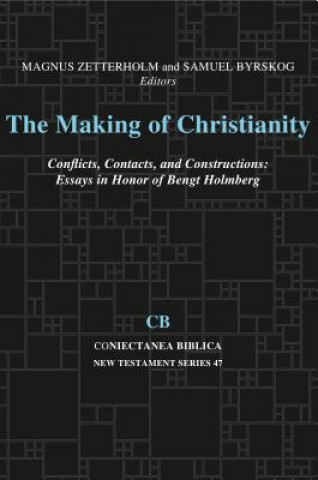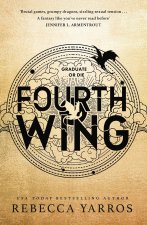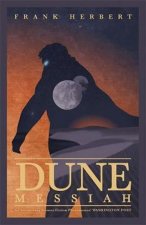
Kód: 20850110
Scourge of God
Autor Selim Adali
Who were the Umman-manda? This is a question that has vexed Assyriologists since the early days of the discipline, particularly because the question has different answers at different times and in different places: Hurrians, Elami ... celý popis
- Jazyk:
 Angličtina
Angličtina - Väzba: Brožovaná
- Počet strán: 240
Nakladateľ: Neo-Assyrian Text Corpus Project, 2011
- Viac informácií o knihe

116.22 €
Bežne: 129.13 €
Ušetríte 12.91 €

Skladom u dodávateľa
Odosielame za 10 - 19 dní
Mohlo by sa vám tiež páčiť
-

Stagecoach
19.61 € -

Ink Silk & Gold
44.57 € -2 % -

Us Against Alzheimer's
25.35 € -5 % -

Amante confeso
15.59 € -5 %
Darčekový poukaz: Radosť zaručená
- Darujte poukaz v ľubovoľnej hodnote, a my sa postaráme o zvyšok.
- Poukaz sa vzťahuje na všetky produkty v našej ponuke.
- Elektronický poukaz si vytlačíte z e-mailu a môžete ho ihneď darovať.
- Platnosť poukazu je 12 mesiacov od dátumu vystavenia.
Viac informácií o knihe Scourge of God
Nákupom získate 292 bodov
 Anotácia knihy
Anotácia knihy
Who were the Umman-manda? This is a question that has vexed Assyriologists since the early days of the discipline, particularly because the question has different answers at different times and in different places: Hurrians, Elamites, Medes, Cimmerians, Scythians—all have been cast as the Umman-manda by various peoples at various times. With intractable questions such as this, it is useful on occasion to recapitulate all the evidence that applies to the question, to integrate new evidence that has appeared since the last recapitulation, and to see if a new synthesis of the evidence is possible. In this work, Adalı does precisely that. After collecting all the textual references to the Umman-manda, the author analyzes the writings, surveys the eytmologies proposed for the term Umman-manda over the years, and finally offers a new proposal for the etymology. He then investigates the nonliterary texts that mention the Umman-manda, seeking clues to their origins and ethnic makeup, finding, as others have, that the evidence is inconclusive and sometimes even contradictory. Turning to the literary texts as a source for the Umman-manda, the author finds more fertile ground. Leaving aside the potential historical kernel of the Cuthaean Legend of Naram-Sin because the available evidence does not speak to this issue, Adalı turns his investigation to the Umman-manda as a lit erary topos. By investigating the motifs and terminology used in the Cuthaean Legend and comparing them with similar usage in other literary works, the author is able to establish a leitmotif for the Umman-manda and then identify this leitmotif in the royal inscriptions of Assyrian and Babylonian kings. While the question of who the original Umman-manda were remains a mystery, Adalı’s work offers new insights and a new outlook on the significance of the Umman-manda in the first millennium and particularly on the question of why the Umman-manda meant different things to different people at different times while, nevertheless, not all enemies were referred to as “Umman-Manda.” It provides a new departure point for further investigations of the Umman-manda as well as for the use of literary allusions in both Assyro-Babylonian literature and royal inscriptions.
 Parametre knihy
Parametre knihy
116.22 €
- Celý názov: Scourge of God
- Podnázov: The Umman-manda and Its Significance in the First Millennium BC
- Autor: Selim Adali
- Jazyk:
 Angličtina
Angličtina - Väzba: Brožovaná
- Počet strán: 240
- EAN: 9789521013355
- ISBN: 9789521013355
- ID: 20850110
- Nakladateľ: Neo-Assyrian Text Corpus Project
- Hmotnosť: 498 g
- Rozmery: 176 × 250 × 18 mm
- Dátum vydania: 30. June 2011
Obľúbené z iného súdka
-

Dune
9.55 € -21 % -

Haunting Adeline
30.58 € -

Berserk Deluxe Volume 2
51.72 € -

White Nights
3.51 € -

Powerless
12.47 € -2 % -

Atomic Habits
15.99 € -14 % -

Dune Messiah
11.26 € -

Berserk Deluxe Volume 3
53.53 € -

One Day
10.56 € -11 % -

Berserk Deluxe Volume 1
51.62 € -

Iron Flame
16.19 € -18 % -

Surrounded by Idiots
10.05 € -15 % -

Harry Potter and the Prisoner of Azkaban (Minalima Edition)
41.55 € -

Gravity Falls Journal 3
21.83 € -

Heaven Official's Blessing: Tian Guan Ci Fu (Novel) Vol. 1
21.63 € -

The Creative Act
25.95 € -5 % -

Dune
9.75 € -31 % -

Hunting Adeline
31.69 € -

A Little Life
17.50 € -

Children of Dune
11.36 € -

Heaven Official's Blessing: Tian Guan Ci Fu (Novel) Vol. 2
23.24 € -

Bungo Stray Dogs, Vol. 8 (light novel)
15.99 € -

Percy Jackson and the Olympians 5 Book Paperback Boxed Set
46.99 € -

Solo Leveling, Vol. 1
21.43 € -

The Prisoner's Throne
11.56 € -2 % -

Court of Thorns and Roses
9.45 € -20 % -

Cry Baby Coloring Book
11.56 € -

Fourth Wing
15.69 € -19 % -

Icebreaker
9.35 € -15 % -

Berserk Deluxe Volume 6
53.03 € -

Avatar, the Last Airbender: The Kyoshi Novels (Box Set)
41.25 € -

The 48 Laws of Power
26.16 € -2 % -

House of Leaves
22.43 € -24 % -

Twisted Lies
9.75 € -17 % -

Dune Messiah
12.47 € -12 % -

No Longer Human
13.17 € -17 % -

48 Laws Of Power
18.81 € -19 % -

Twisted Games
9.35 € -21 % -

Caraval Paperback Boxed Set
42.86 € -

Solo Leveling, Vol. 2
19.61 € -13 % -

Open Circuits
41.25 € -

Berserk Deluxe Volume 5
51.21 € -

Heaven Official's Blessing: Tian Guan Ci Fu (Novel) Vol. 3
17.40 € -16 % -

Berserk Deluxe Volume 4
51.31 € -23 % -

Court of Mist and Fury
9.35 € -18 % -

SOLO LEVELING V08
21.53 € -

English File Upper Intermediate Multipack A (4th)
19.31 € -12 % -

CHAINSAW MAN V14
11.26 € -

Before the Coffee Gets Cold
8.95 € -16 %
Osobný odber Bratislava a 2642 dalších
Copyright ©2008-24 najlacnejsie-knihy.sk Všetky práva vyhradenéSúkromieCookies


 21 miliónov titulov
21 miliónov titulov Vrátenie do mesiaca
Vrátenie do mesiaca 02/210 210 99 (8-15.30h)
02/210 210 99 (8-15.30h)